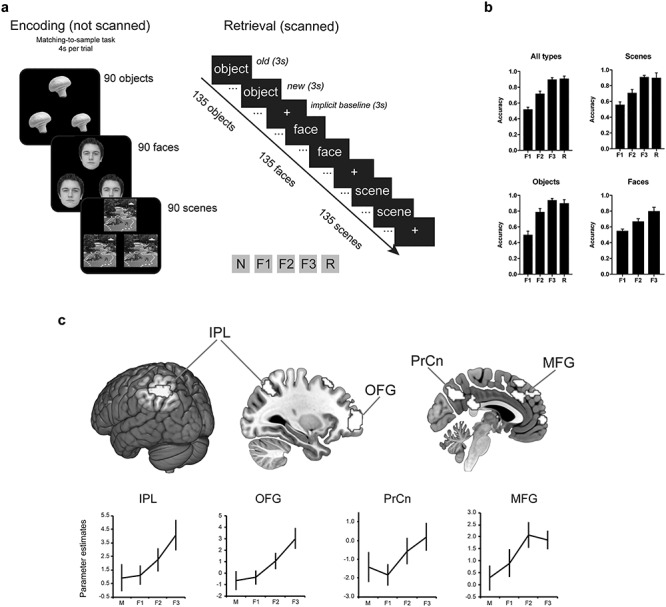Figure 1.

Experimental design and whole-brain material-general familiarity findings. (a) Experimental design of the fMRI study. Participants (n = 17) encoded a series of objects, faces, and scenes using a shallow (matching-to-sample) encoding task. At retrieval in the MRI scanner, they were asked to rate feelings of familiarity (F1 = weak; F2 = moderate; F3 = strong familiarity), to detect new stimuli (N) and report instances of spontaneous recollections (R). (b) Accuracy across familiarity and recollection responses collapsed for all stimulus types and separately for scenes, objects, and faces. Faces did not generate enough R responses and therefore only F responses are reported. (c) Whole-brain material-general familiarity activations and parameter estimate plots. Abbreviations: M = misses; IPL = Inferior parietal lobe; OFG = Orbitofrontal gyrus; PrCn = Precuneus; MFG = Middle frontal gyrus. Error bars show the standard error of the mean.
